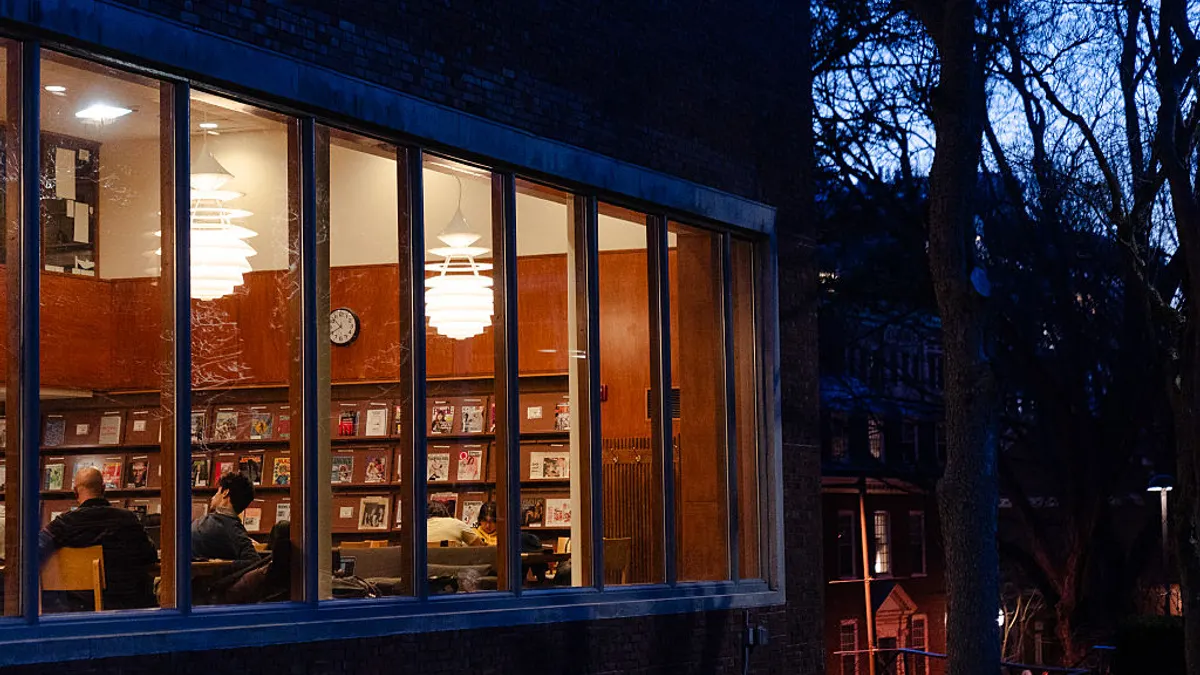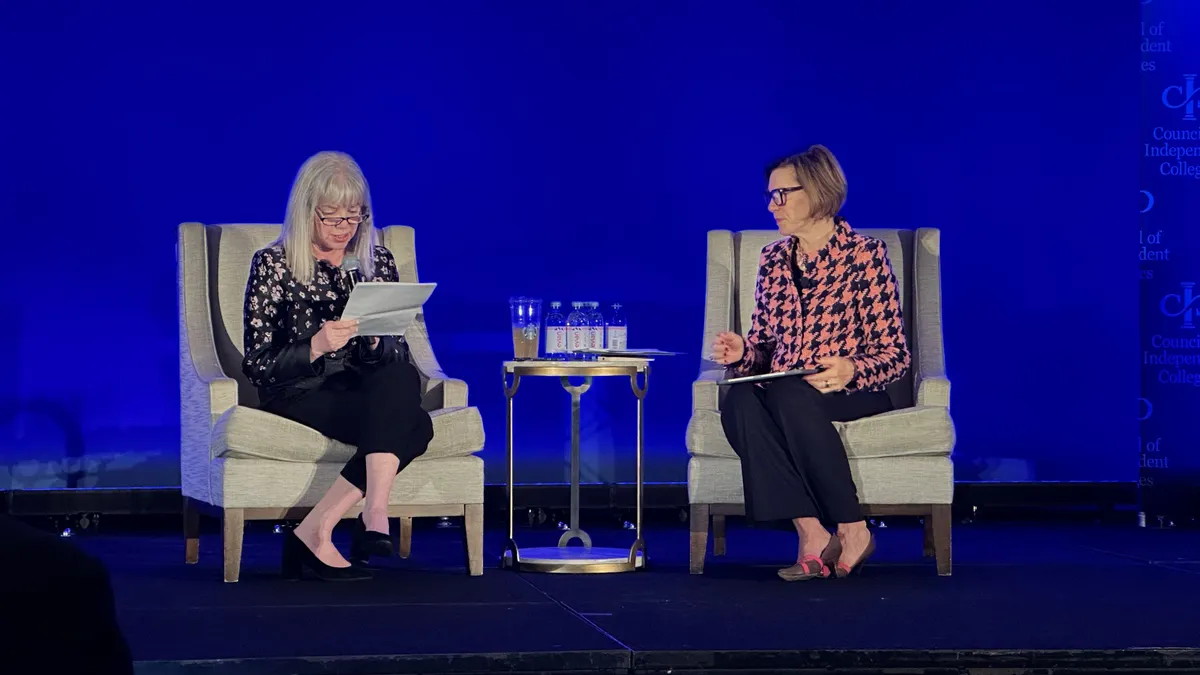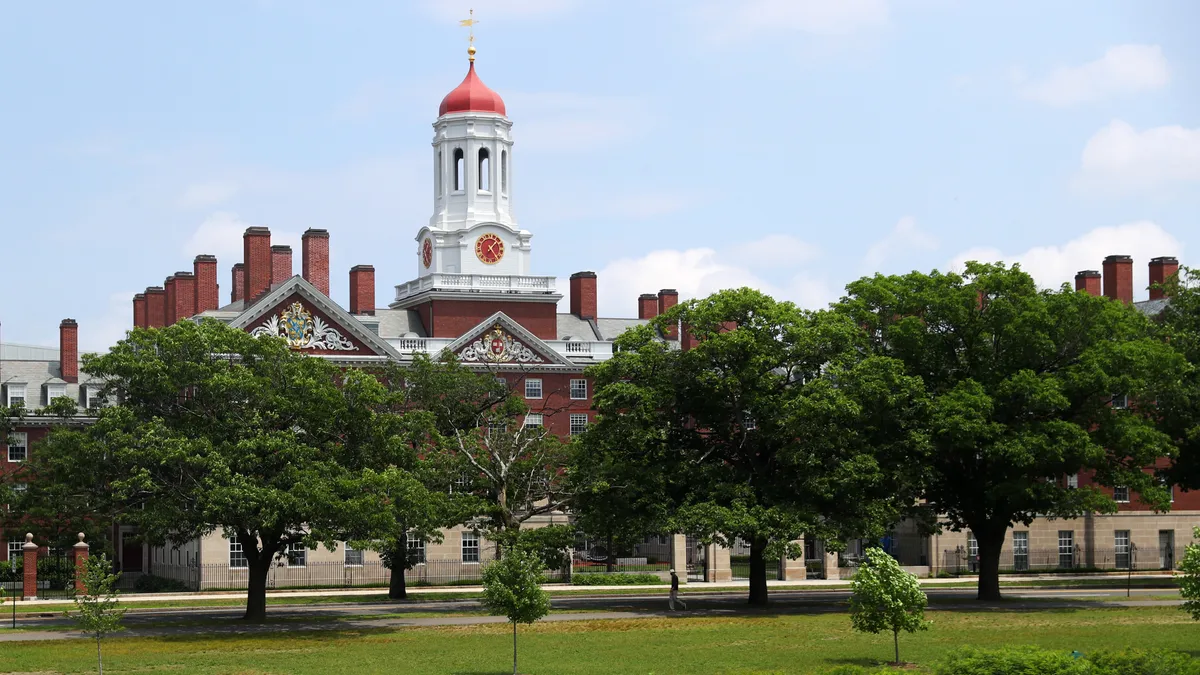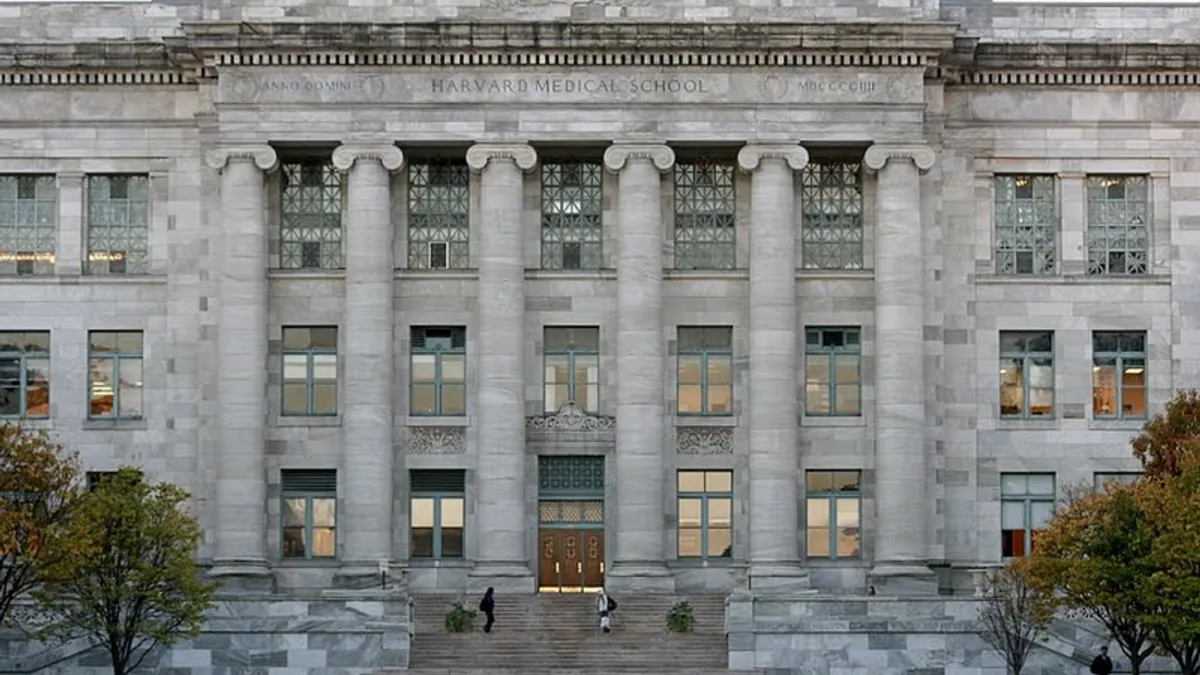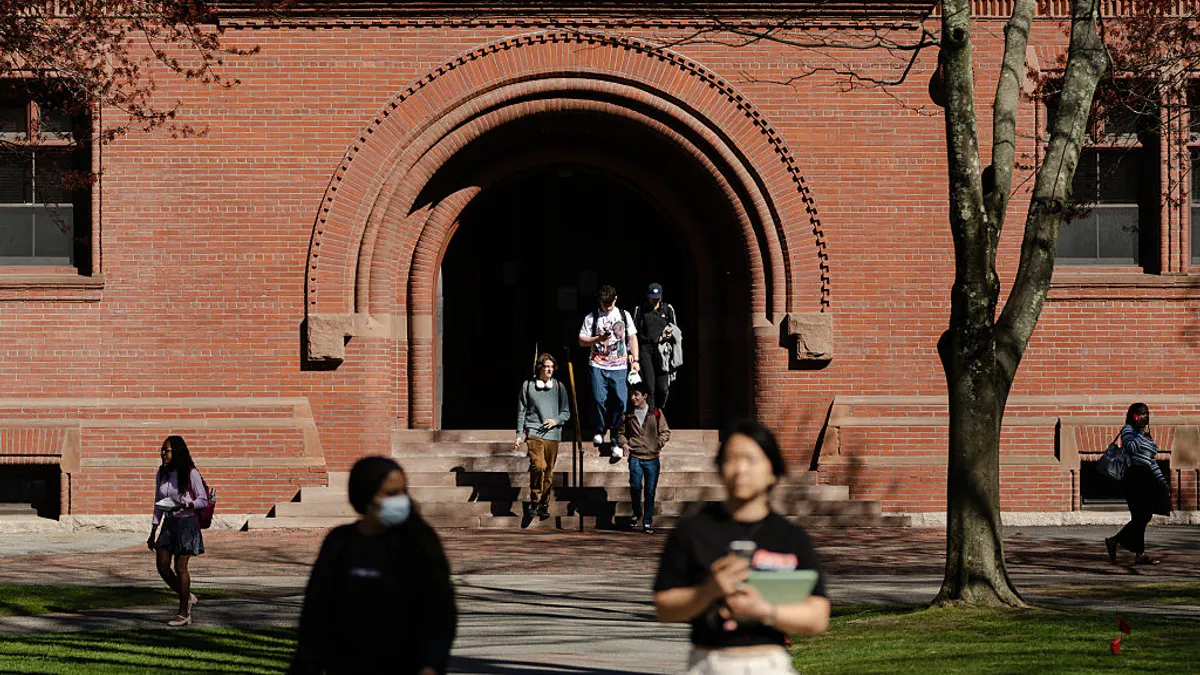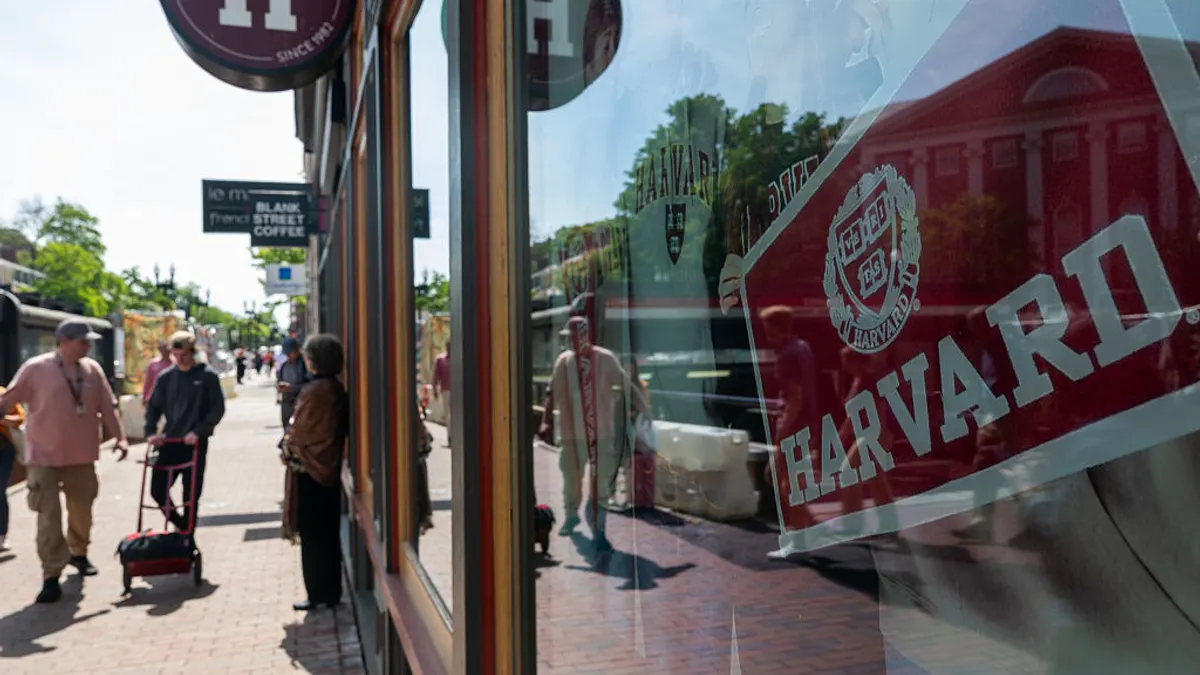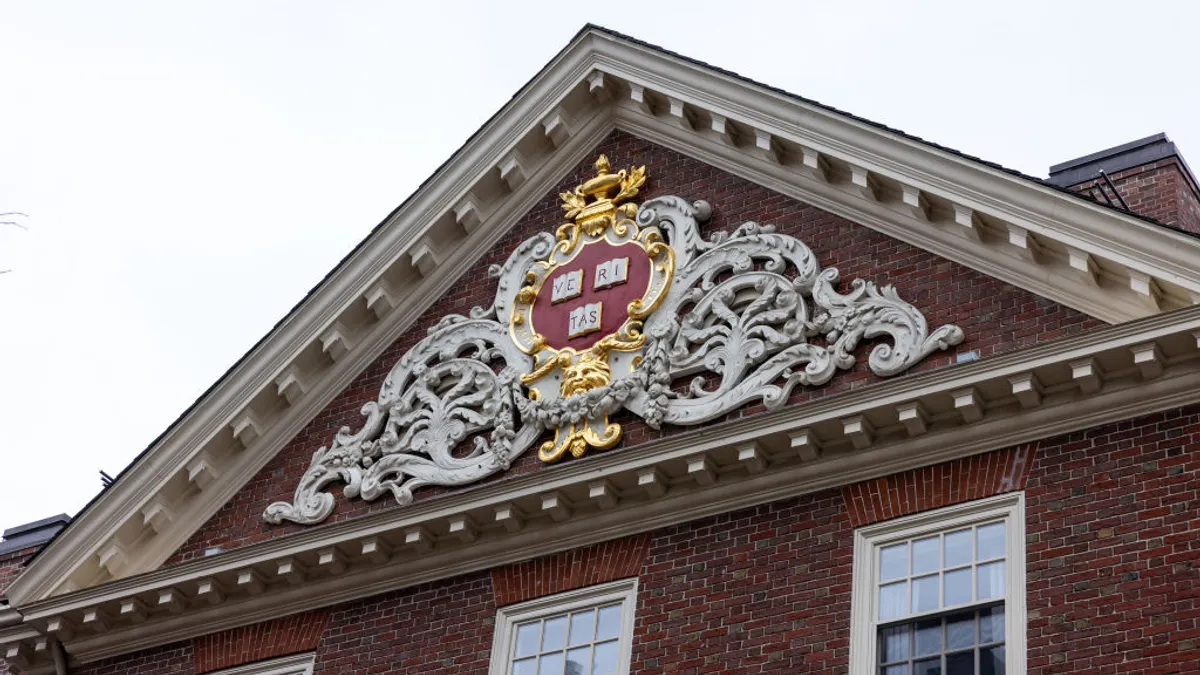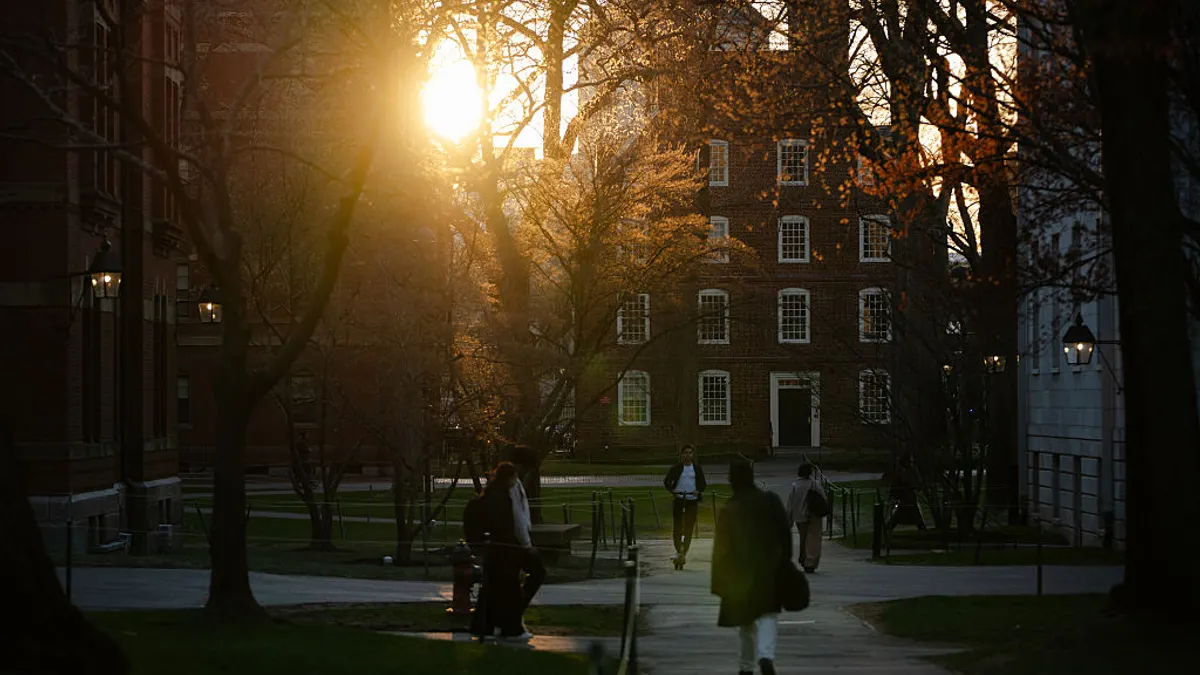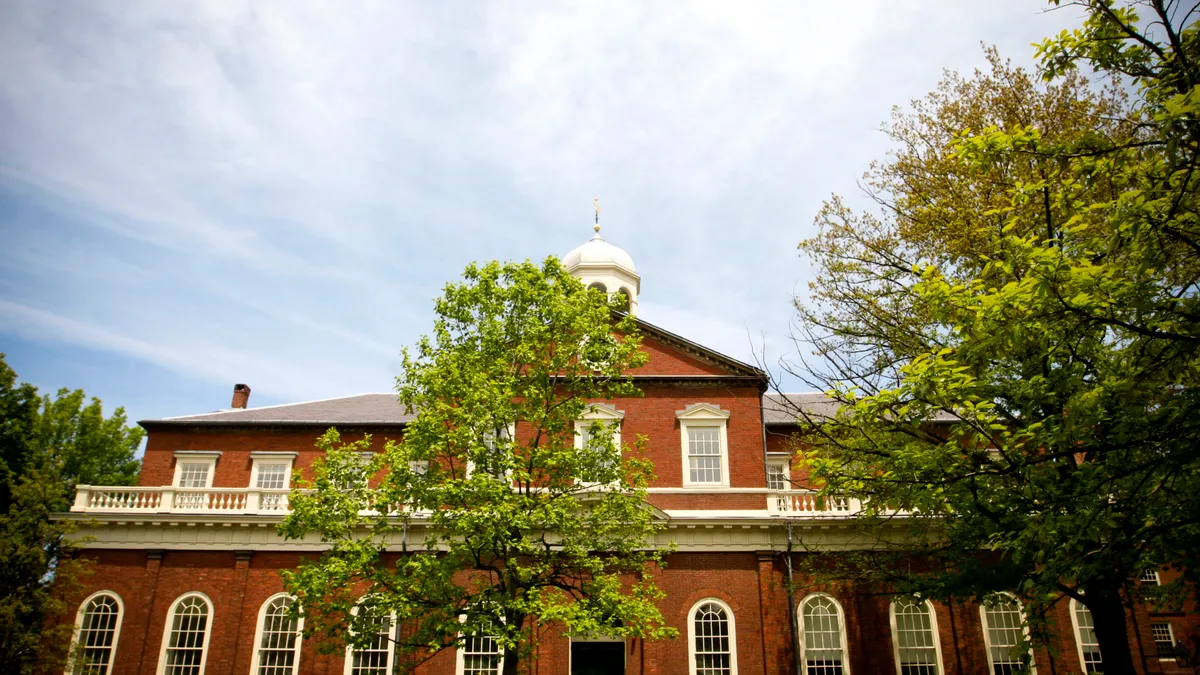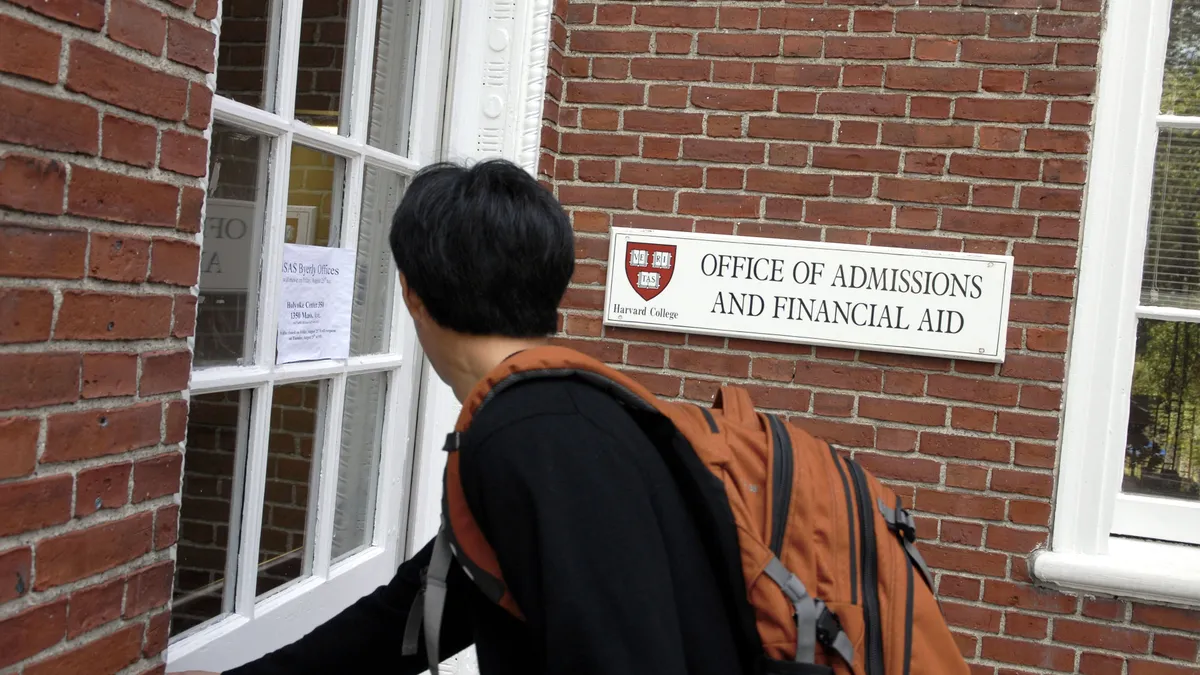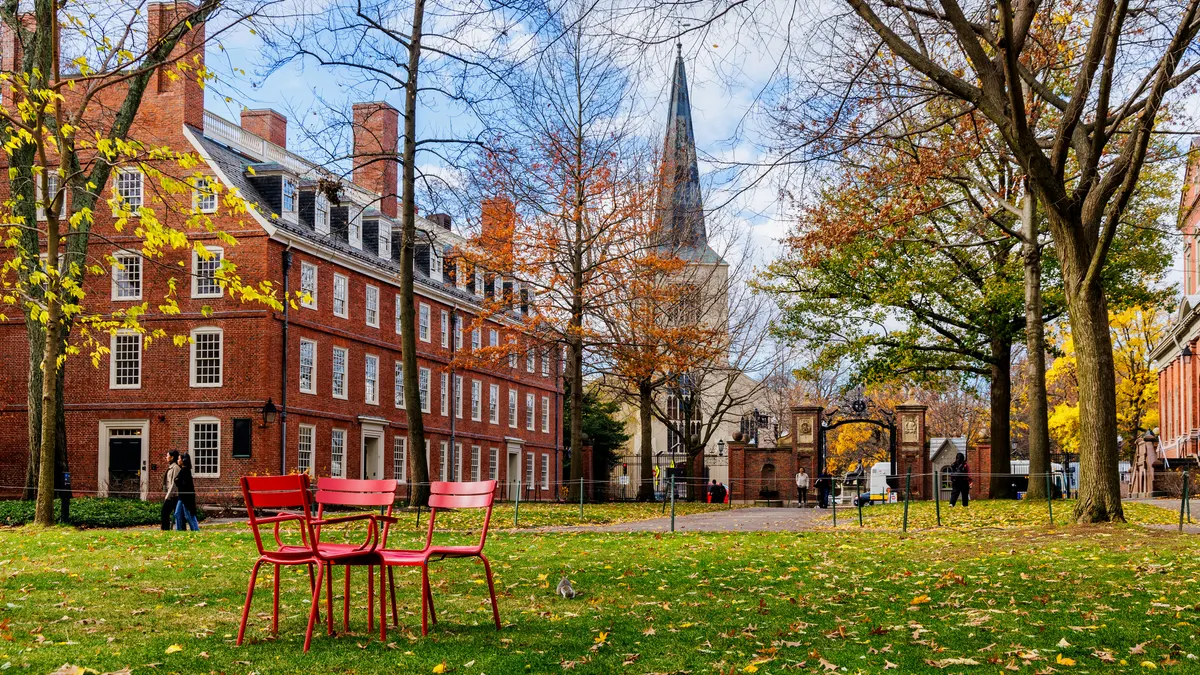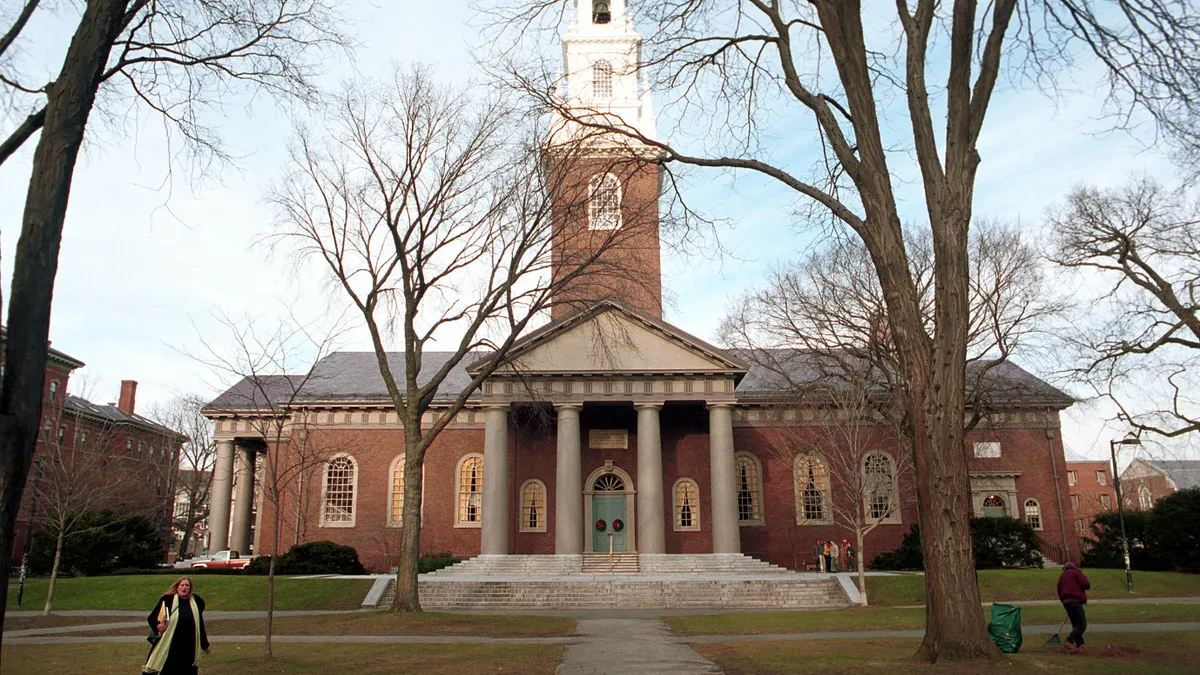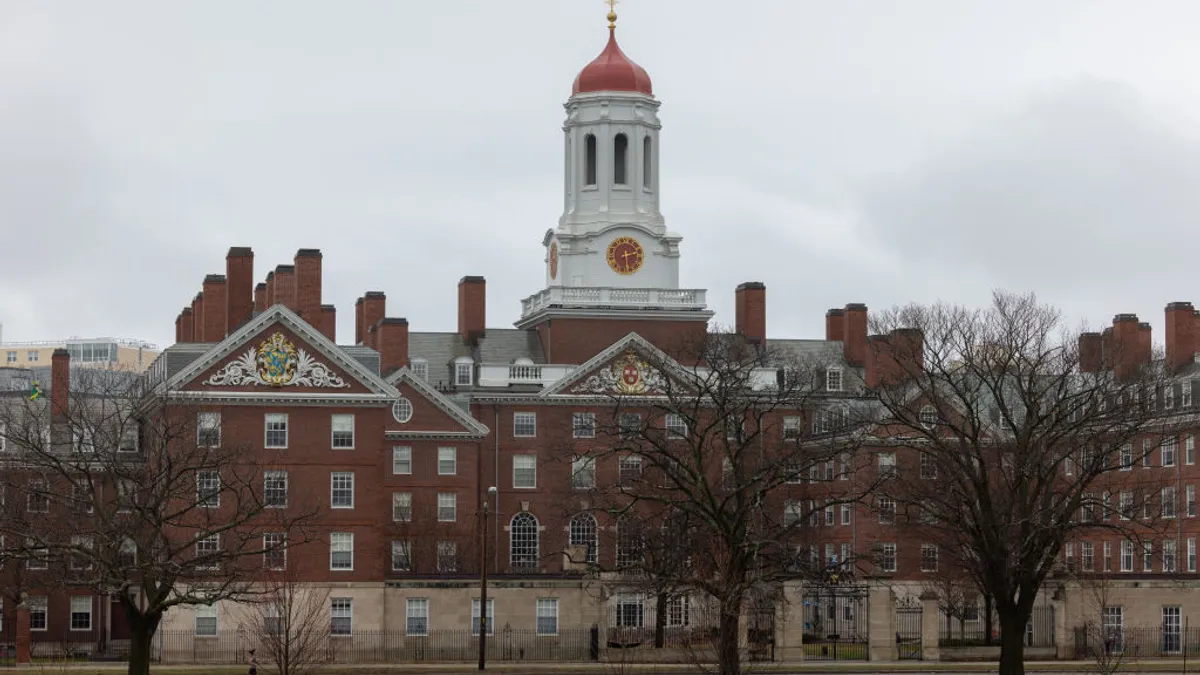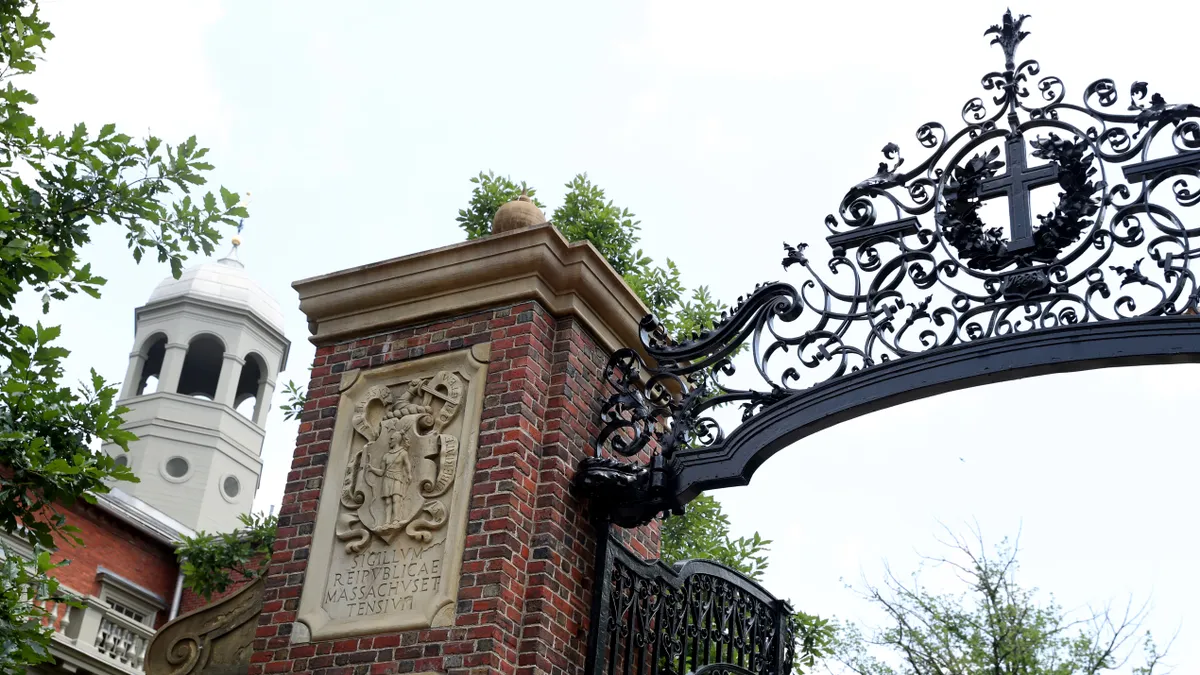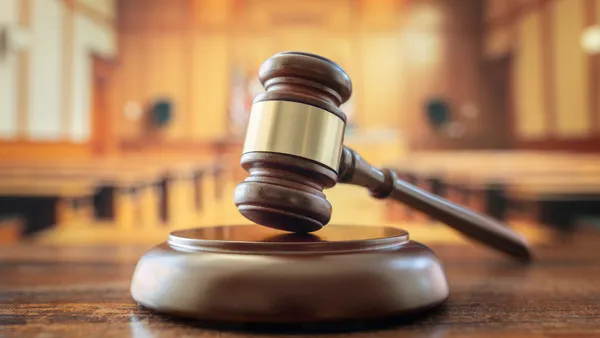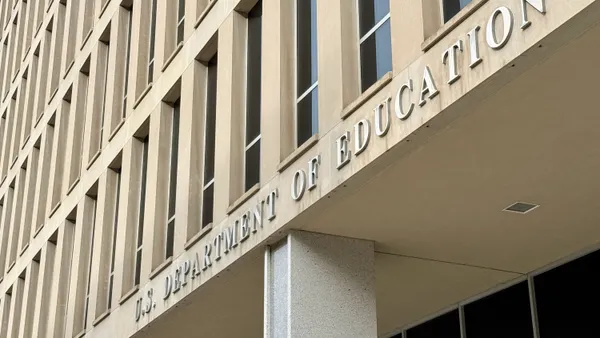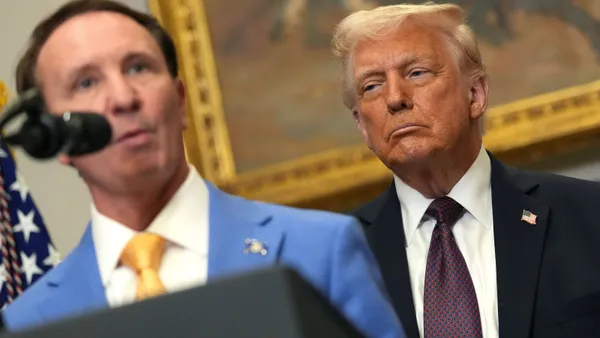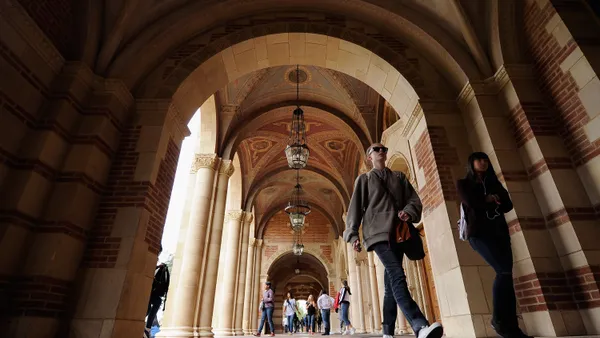Dive Brief:
- Harvard University will put $250 million of its own funds toward research affected by the ongoing wave of federal cuts, according to a Wednesday announcement.
- Since last week, Harvard has received "a large number of grant terminations from the federal government," President Alan Garber and Provost John Manning said in a campuswide message. The funding disruptions are halting “lifesaving research and, in some cases, losing years of important work,” they said.
- Harvard is taking the same tack as Northwestern and Johns Hopkins universities, which announced in April they would use institutional dollars to cover the cost of ongoing research hit by cuts.
Dive Insight:
Northwestern and Johns Hopkins began self-funding some of their own research after hundreds of millions of their federal funding had been lost or frozen due to the Trump administration.
Since Trump retook office, several federal agencies have abruptly changed their funding policies, cutting off billions in grants and contracts with little to no warning. The National Institutes of Health alone slashed $1.8 billion in a little over a month, according to findings published in JAMA last week.
Harvard is now similarly self-funding affected research. But the federal government's attacks against it outpace those directed at many of its peers.
Last month, the Trump administration canceled over $2.2 billion in federal funds to Harvard after the Ivy League institution publicly rebuked its ultimatums, arguing they overstepped the federal government’s authority. Among the demands, the administration sought a third-party audit of the viewpoints of university employees and students and wanted Harvard to selectively curtain the power of certain employees based on their activism.
The university is now bracing for even more cuts and mounting a legal battle against the Trump administration to regain its federal funding.
The university intends to fight the government's "unlawful freeze and termination" of many of its grants and is doing what it can in the interim, Garber and Manning said Wednesday.
“Although we cannot absorb the entire cost of the suspended or canceled federal funds, we will mobilize financial resources to support critical research activity for a transitional period as we continue to work with our researchers to identify alternative funding sources," they said.
They added that the university will advocate for "the productive partnership between the federal government and research universities" that has existed for over eight decades.
Over 50 higher ed organizations, led by the American Council on Education, made a similar plea in a joint statement Wednesday.
"The entire country benefits when policymakers and higher education leaders respect a common understanding of the vital role colleges and universities play in advancing the social, cultural, and economic well-being of the United States," the organizations said.
They argued that the release of research funds should not be contingent on which students colleges enroll, what programs they offer or how they oversee their instructors. The signatories also include the American Association of Colleges and Universities and the New England Commission of Higher Education, Harvard's accreditor.
Prior to its announcement Wednesday, Harvard had already implemented a hiring freeze for the spring semester. And dozens of faculty members have pledged 10% of their salaries to shore up against the “severe financial damage" the university faces as it takes the Trump administration to court.
Garber recently made a similar pledge. He will take a voluntary 25% pay cut beginning in July, a university spokesperson said Thursday.
Harvard has not yet publicly disclosed the new president's salary. But his predecessors have made north of $1 million annually, meaning his voluntary pay cut in fiscal 2026 would likely net the university six-figure savings.
Garber, a longstanding Harvard employee, has taken a pay reduction during turbulent financial times before. As provost, Garber took a 25% cut in 2020 in response to the pandemic, as did the university’s then-president and executive vice president.


